Want to change the world? Educate Girls.
Education is the “key” and “the foundation” to improving the world, according to the United Nations. Episode 2 of Global GoalsCast explores the power of education, particularly educating girls. “Keeping girls in school makes a huge difference,” says co-host Edie Lush. “This is probably the single most powerful step the world can take to improve not only girls’ lives but the lives of their families and countries”.
Number 4 of the 17 Global Goals is to “ensure inclusive and quality education for all and promote lifelong learning” by 2030. Co-host Claudia Romo Edelman doesn’t mince words. “It’s such a huge task”, she says. Today there are 120 million children between 6 and 15 who do not attend school at all and millions more whose schooling has failed to teach them to read, write or do basic math. Romo Edelman says there will be no grand solution. Instead, she says, educating every child must happen school by school and student by student. “A thousand small steps that add to the big dream”.
Lush and Romo Edelman visit two schools to show this. The first school serves some of the poorest children in India, the Adavasi. Toilets, textbooks and uniforms are needed just to keep the girls in school. Faced with that struggle, bigger goals are hard to come by. “No one ever asked me what my dreams were”, one mother told Dr. Jeannette Monosoff Haley, co-founder of the Shree Nityananda Trust, which supports the school. In Austin, Texas, we visit a school created to inspire and guide girls to dream big and set high goals. This school, Lush says, has what Monosoff Haley wishes she could offer for her students.

Traveling to rural India each year with her family, Dali and Finn made many friends there. One year, they returned to find that the government had stopped paying for some of their friends’ uniforms after they reached 12 years old. Since students were forbidden to attend school without uniforms, those who could not afford uniforms could no longer receive an education. Together Dali and Finn co-founded Nalu to break the poverty cycle and give students of all socio-economic levels the opportunity to stay in school. Dali oversees the process from start to finish, first designing the uniforms, and then traveling to India to lead their distribution.
In a pilot program, Nalu made and provided more than 1,300 school uniforms to children living in extreme poverty, resulting in a 78% increase in enrollment. Not only are more students attending school, but academic performance has increased and teenage pregnancy in the village has decreased. Further supporting the community, Nalu employs local tailors to manufacture the uniforms. To ensure the sustainability of their impact, Dali and Finn developed a business model by selling clothing and accessories. In the coming year, Nalu’s business revenue will provide 20,000 uniforms per month by 2020, creating long-term impact for rural India.
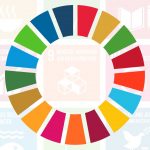
Dennis (pronounced Denise) will be the first in her family to graduate from college. She was the Boys & Girls Club Youth of the Year for Texas. She also was awarded the Bonner Scholarship, which is based on community service, and she was involved with the National Hispanic Institute at the state level.
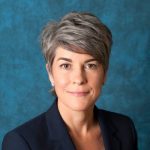
Ellen Richards is the Chief Strategy Officer at Integral Care where she oversees team responsible for strategic direction for the organization, resource development, external and internal communications, government affairs and community outreach/diversity. Ellen is also the Chair Emeritus for the Ann Richards School Foundation, a foundation that raises funds and forms partnerships to advance education, empower young women and create opportunities for girls who may otherwise be held back from achieving their full potential.

Dr. (Mrs.) Jeanette Monosoff-Haley is the Co-Director of the Shree Nityananda Education Trust. She has completed a Doctorate in Clinical Psychology, a Masters in Clinical Psychology and a Masters in Transpersonal Counseling.. For over twenty five years, Dr. Haley worked as a Licensed Marriage and Family Therapist and Individual Psychotherapist in her Private Practice, at the Indian Health Service (a US Federal agency) in Taos, New Mexico, and at a Geriatric Mental Health Clinic in San Francisco. Together with her husband, she volunteers to co-manage the Fire Mountain Retreat Center as well as work closely with the TMA Indian partners and the various social work projects.
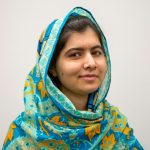
Malala Yousafzai is a Pakistani activist for female education and the youngest Nobel Prize laureate. She is known for human rights advocacy, especially the education of women and children in her native Swat Valley in Khyber Pakhtunkhwa, northwest Pakistan, where the local Taliban had at times banned girls from attending school. Her advocacy has grown into an international movement.

Sruthi Palaniappan is from Cedar Rapids and a student of the Harvard University is a big supporter of Clinton, the first woman to be nominated as a presidential candidate by a major political party. Sruthi made history when she was given an opportunity to represent Iowa during roll call votes.

will.i.am, born William Adams, is a multi-faceted entertainer and creative innovator, a seven-time Grammy Award winner, and founder of I AM ™. He is well-known for his work with The Black Eyed Peas, who have sold 31 million albums and 58 million singles worldwide, will.i.am advocates regarding the importance and power of a good education through his i.am angel foundation. As part of will.i.am’s philanthropic commitment, he hosts his annual TRANS4M Conference and Benefit Concert during Grammy Week. Recognized and honored by numerous industry organizations, will.i.am was named a Young Global Leader by the World Economic Forum in March, 2013, in recognition for his role as a STEM education advocate. He is the recipient of multiple Grammy Awards, a Latin Grammy Award, an Emmy Award, a CLIO Award, two NAACP Image Awards, a VH1 Do Something Award, the BMI President’s Award and a 2008 Webby Award.
Priti & Nalu Photos
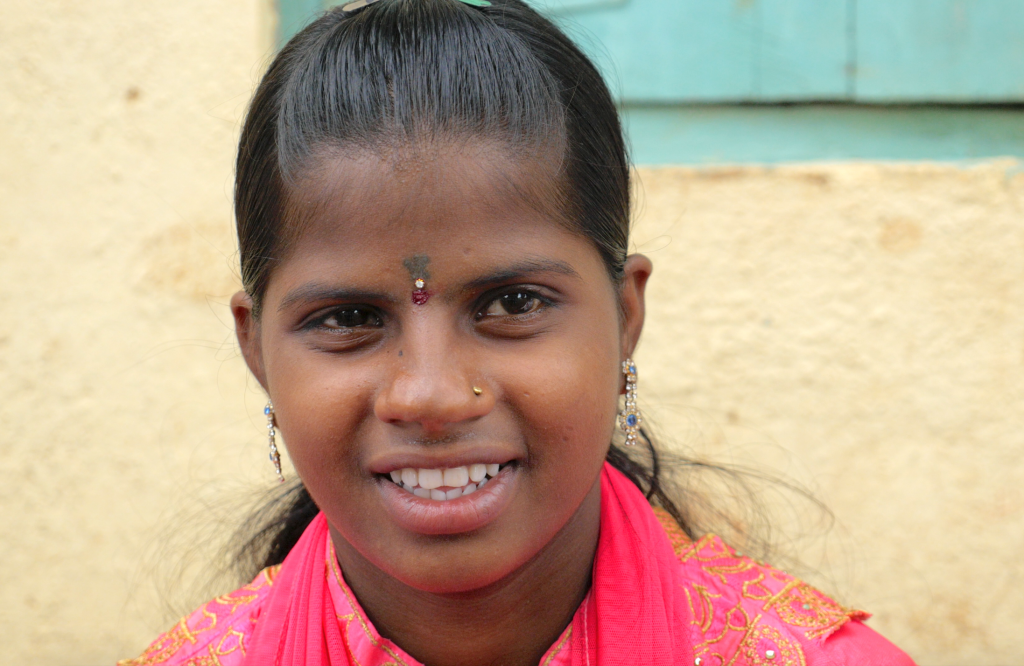
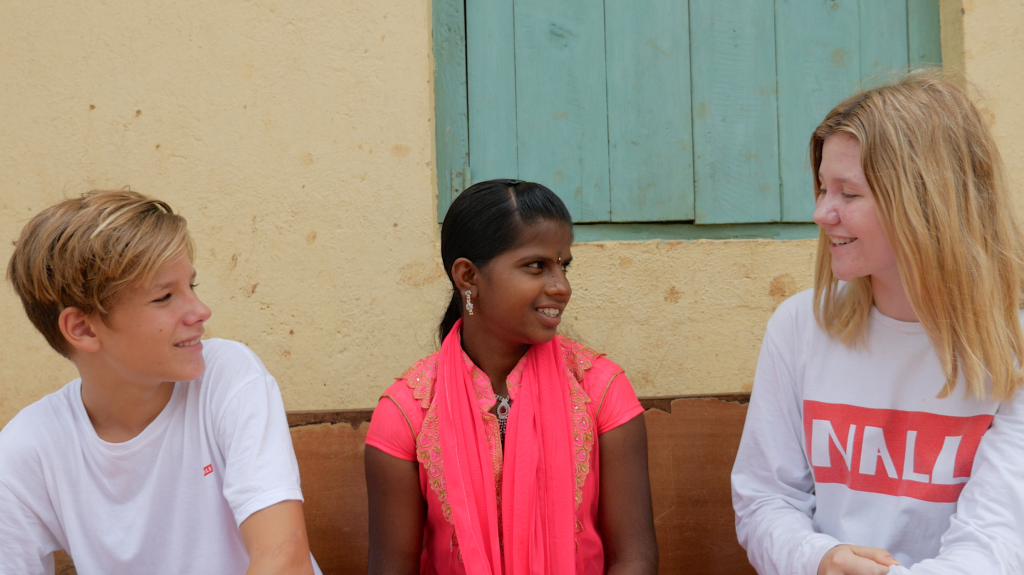
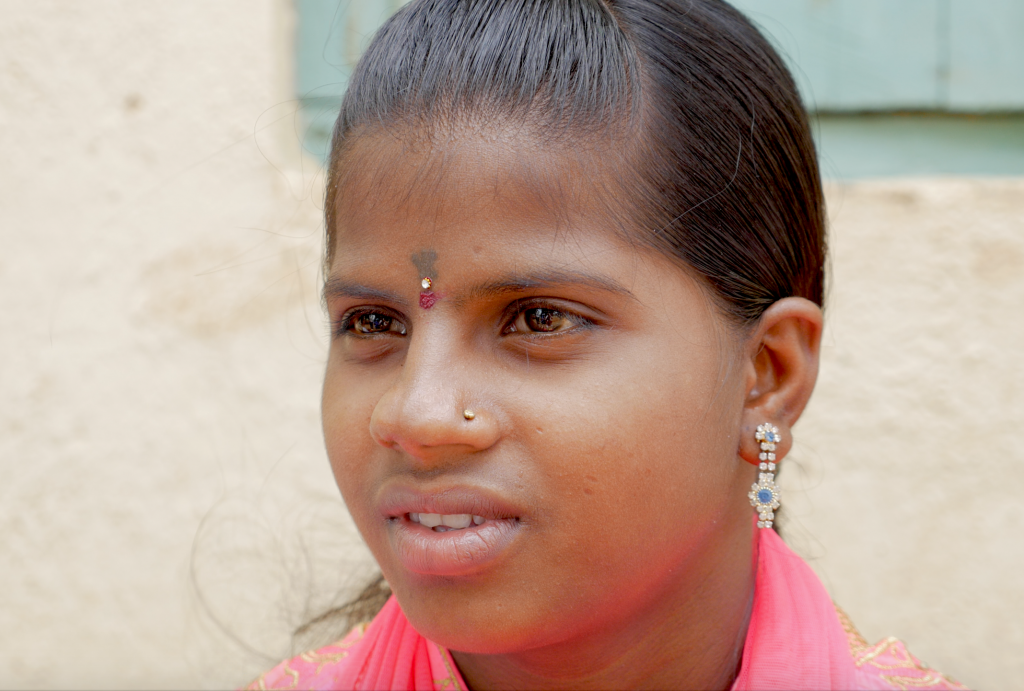
Transcript
[00:00:00] P1: She could not understand what that even means. What does it mean to have a dream? One lady is literally says ‘no one’s ever asked me what my dream was’.
[00:00:09] P2: She just looked into my eyes and then she closed her eyes and she just smelt it. She smelt the uniform and it was like the first new thing that she’d ever smelt.
[00:00:18] P3: To be able to know that I was capable of achieving more than what society considered this is what someone who falls under this category can achieve.
[00:00:29] P4: Education is not a privilege. Education is a right. Education is piece.
[00:00:45] EL: Welcome to the Global GoalCast.
[00:00:49] CG: The podcast that explores if we can change the world.
[00:00:51] EL: I’m Edie Lush.
[00:00:52] CG: And I am Claudia Romo Edelman. We’re happy to have you here.
[00:00:57] EL: Yeah! This episode we’re going to talk about educating girls, two stories talking about how keeping girls in school changes their life and so much more.
[00:01:04] CG: Right after this.
[00:01:05] AD: In every episode, we will give you the sticky facts and figures that you will want to share with your friends over coffee. All data is brought to you courtesy of SAS. Our official analytics and data visualization partners. And you can go to our website at GlobalGoalsCast.org to find even more data visualizations and maps. We love you SAS.
[00:01:29] CG: Our job in the Global GoalsCast is to tell you the stories of one of the most remarkable combined efforts in human history. 193 nations have set goals from 12 years from now everything from ending extreme poverty to fighting climate change and making the world a better place and making it for all. So with those ambitious goals why are we focusing this episode to education on girls Edie?
[00:01:55] EL: I remember the first time I met you in fact you said that if you scratch the surface of the goals, what you see is they are all super dependant on each other. So we’re going to be talking a lot about that. We’re also going to talk about how hard it is to reach these goals and how a failure in one goal or one area can undermine reaching all the other areas.
[00:02:15] CG: They are so connected.
[00:02:16] EL: So we’re going to start with education in particular educating girls because this is probably the most single most powerful step the world can take to improve not only girls’ lives but the lives of their families and actually the economies of countries. UN is called education the key the foundation to all sorts of other goals like health, prosperity and amazingly even tolerance and peace.
[00:02:40] CG: The goal overall within the Sustainable Development Goals is to provide by 2030 free education for everyone on primary and secondary school is such a huge task, if you think about it. And if you think where we are right now, we have 120 million children between 6 and 15 years old that are out of school and that’s a huge challenge.
[00:02:58] EL: More girls are in school now than in the past. There are still more likely than boys to drop out or be kept out of school and still too often families favor boys over girls when they’re investing in education, even though research shows keeping girls in school makes a huge difference.
[00:03:18] CG: It is also regional and a lot of these challenges happen in regions for example sub-Saharan Africa and South and West Asia. And just in those areas, if every woman in those parts of the world would have a secondary education, child marriage would be reduced by two thirds, earnings of the women would rise, early pregnancy until Labor would be reviewed, you get it, I mean it’s a cycle. Like you would actually start changing the vicious cycle into a virtuous cycle. So here’s Malala Yousafzai who’s an activist and Nobel Prize laureate explaining the situation.
[00:03:54] MY: Education is not a privilege. Education is a right. Education is peace. Dear world leaders promise us that you will keep your commitments and invest in our future. Promise that every child will have the right to safe, free and quality primary and secondary education.
[00:04:23] CG: That was Malala talking at the United Nations. She is probably the most inspiring girl to girls. There is no doubt that girls know Malala and want to help and have become activists on education because of her. So the world is very long way from educating every child from today. But there is one thing that is clear there is not one grand solution that we can take and think OK, so if we would do one thing, it will happen. I think that we have to realize that for progress over the next 12 years in which we have to commit to achieve these goals has to be done one by one, student by student, school by school, a thousand small steps that would add to the big dream.
[00:05:17] EL: OK, so we’ve got two stories that show this. Two girls one’s from India, the other one is from Texas.
[00:05:22] CG: A Hispanic by the way.
[00:05:13] EL: And there you go. Both of them are now finishing college and that is thanks to some inventive efforts and actually quite a few efforts. Lots of thousand small steps on either side that kept them in the school. First of all, we’re going to go to India and talk about Priti and her rural school and things that I took for granted, the things that my kids take for granted having textbooks, having a toilet and having a new uniform, having a uniform at all make a huge world of difference. And actually you can see pictures of Priti in her school on our Web site. That’s GlobalGoalsCast.org.
[00:05:57] CG: Which is very cool.
[00:05:59] EL: So I spoke to Dr Jeanetta Monosoff Haley. She’s the co-founder of the Shree Nityananda Education Trust. She’s originally from Oregon. Actually she went to St. Mary’s in the Bay Area which is very near to where I’m from. She’s actually she moved to Taos, New Mexico. She’s been living in India for the last few years. I spoke to her about going to school in the tribal areas and Jeannetta works with the Adivasi people. Now these are a collection of tribal people who are some of the poorest in India.
[00:06:30] CG: Yeah!
[00:06:31] EL: They live under or close to the definition for extreme poverty, the $1.90 a day range – which UN Goal number 1 commits the world to eradicating.
[00:06:39] JMH: Sarasvati secondary school has about 90% Adivasi and these are people who are very forgotten by the Indian government. Some of them are half farm that may be a couple acres at the most. So their schooling is substandard compared to anything in the city. And the children have to do their chores before they ever go to school. So the girls particularly are up maybe four or five with mom in the morning to wash clothes and bathe and cook before they ever get to go to school.
[00:07:13] So it’s a really tough life for these tribal children. The cost of a uniform, you know, might be twelve hundred rupees which can be very expensive for them and the girls might not get their parents to buy them a uniform because why should we educate our girls because they’re just going to get married and move in with another family. It’s not worth the investment to educate her. Saraswati secondary school, when we first met them, there were 200 students and there were no bathrooms for the girls. So what that means is the girls either have to hold it or they go home in the middle of the day to pee or they go in a bush. So a lot of girls drop out because there’s no bathroom. The other thing we notice is thw school only had five sets of textbooks for these 200 children or per class of 60 I guess it was. So we did a fundraising to buy them books so we bought enough books so every ten children had a book to share. I mean how can you study math without a textbook. I mean, how can you study anything without bringing your book home or at least being able to stay after school an hour and study.
One of the biggest problems here in the tribal area is that the girls are getting pregnant early because the fathers want to marry them off and get them off of their dining table and get them off into the new table and they might be getting married at 15-16. Now that’s against the law, but out here in the tribal area there’s no police, you know there’s none of the services we’re so used to in the West. So these kids just fall through the cracks. Having a baby when you’re 15, 16, 17, 18 your own body has not matured. You’re not producing the healthiest baby you can. So there is a drive to try and keep girls in school so they won’t have go off and get married and have a baby before they’re ready at least till 18 is considered the minimum.
So many of these women, they’ve never had a dream. One lady literally said no one’s ever asked me what my dream was. For Priti who is 16, 17 at that point, it’s just not a concept about having a future. Particularly if you come from a poor family. Maybe the dream is she is going to have a nice husband and a nice mother-in-law and maybe they won’t be too mean to her.
[00:09:40] CG: So these are some of the poorest people in India and into the scene work two international kids who came up with a creative way to help these children.
[00:10:03] EL:They were visiting with their parents who are volunteering at a school Jeanetta’s trust was involved in.
[00:10:08] CG: And those are Finn & Dali from Nalu.
[00:09:59] FS: As they were like volunteering as chiropractors and like, chiropractic and adjusting all these kids, me and my sister were making friends on the playground with these kids cause you’re in the very school they were at. And we just loved being and visiting with their friends and they love chiropracting so much and we went back there every single year. But one year when we came back, we realized some of friends were actually gone. So we did some research and we asked the teachers and other kids and they said that they were gone because they simply didn’t have a school uniform. So, that’s how we started Nalu actually because we simply just want to help our kids get back to school and get their school uniform.
DS: Yeah, as a 13 year old girl I just couldn’t believe that something so simple and so ordinary like a uniform had such a crazy huge measurable effect and an impact.
FS: I could really see myself in these kids. I couldn’t imagine these kids not being in school or being in a dangerous situation. This is something we simply did not like & we were going to change this and this has just turned into our passion.
DS: What now it really comes down to that it really does break the poverty cycle, you know? You have uniform and you can go to school. For every four products that we sell we give one school uniform.
[00:11:32] FS: Four for one.
[00:09:59] DS: Yeah! Four for one. But it’s like, you know, letting the way that you live, being the way that you give at the same time. It’s kind of our motto I guess. You know, you should be able to not have to go out of your way to give you know, you shouldn’t have to go on some website to donate to this organization or that organization. You should just be able to live your normal life wear the clothes that you like to wear, eat the food that you like to food…
FS: Brush your teeth every morning.
DS: …live your normal life and at the same time be able to give back, you know? This is where the ‘Buy One, Give One’ sort of comes in place, where you get a product that you want to wear, say a shirt or a cap or a backpack and at the same time you give children the opportunity to stay in school.
FS: …It’s that simple.
DS; The very first school uniform was given to a girl called Priti. And she was about to leave school because she couldn’t afford to pay for a uniform and she’d never owned anything new before in her whole entire life. And then when I gave her a uniform she just looked into my eyes and knowing that moment I really knew that Nalu was going to work you know, either it didn’t matter what was going to happen after that, at least may be one little impact you know like it worked. She just looked into my eyes and then she closed her eyes and she just smelt it. She’s smelt the uniform and it was like the first new thing that she’d ever smelt. And then she just ran to the bathroom and put on her new uniform and then she walked out like the red dusty school playing and she looked like she she’s was just glowing. She was so happy because that uniform was so much more than just a piece of clothing for her. It was, it was the key to her freedom, you know. She could now stay in school instead of having to be at home. And who knows what would have happened…
FS: Actually what we found out on our last giving trip is she’s gone to college now. So that was like, oh! my god, like me and Dali that was one of the happiest moments that this first school uniform recipient that we’ve given if we didn’t give that school uniform she would now probably be pregnant like her other sisters. She’s now in college studying what she loves.
[00:13:28] CG: Those were Finn and Dali from Nalu. I love their enthusiasm, I love how children are taking the world in their hands and they’re not going to stop and wait until someone bigger and older and a system and a government is going to take change. They want to be empowered. They want to decide what they do taking action and actually involving children like mine into Nalu. Jeanetta also explains how making the uniforms gave work to the other people in their community.
[00:13:56] Jeanetta: We’ve been teaching women how to sew for almost 10 years even before we got here. And then women would come to me and say I want work. I want to earn money. I don’t care about the certificate, give me a job. I decided to see if I could figure out how to do a workshop. And we started with quilt making and over a weekend workshop we trained 18 women on how to make quilts. At the end of the workshop we hired eight of them and now we’re up to 35 and making the uniforms is going to take up three months of our work because last year with 775 uniforms.
[00:14:35] CG: So this is what I love about Nalu. The kids were supported by the parents to set up Nalu and then they created this model in which..
[00:14:43] EL: They work with Jeanetta’s trust who pays the women in the area to make the uniforms..
[00:14:50] CG: ..and then the uniforms goes to the kids.
[00:14:51] EL: I love it.
[00:14:52] CG: It’s great.
[00:14:53] EL: Dali & Finn’s father Vismai tells us more.
[00:14:55] Father: I think it’s a really interesting one as a parent actually. Cause they started it when they were just 10 and 13. I mean it’s just growing quite organically actually that at a certain point, I mean we just had Nalu T-shirts & sweaters even blocking the doorways and there was so many products in the house and at a certain stage we were like, OK you know, business is actually working, we’re having an impact. But at the same time, they were still kids so how do you protect a child from the unnecessary things that a child doesn’t really need to know about a business. Like I didn’t want the children to know about cash flow when they were 10 and 13. I was just living these dream of selling T-shirts and giving school uniforms. So we just wanted to protect them from that. But what I really like sharing with them is the giving trips. As a family going into these poor communities in India and making an impact and letting the children find out from their own friends and seeing these children each year and going to different schools and exploring new places and keeping these, that’s it, poor village children in school.
[00:16:07] CG: As a mother, I can identify with Vismai’s desire to protect his own kids from the harsh realities of this world. But in reality, if you think about it, if you really mean that there is no one to protect you from those realities and there’s so many harsher realities in the world of Jeannetta’s she explained. So well, Priti is in College, her future is yet to be written.
[00:16:30] Jeanetta: These schools are so poor, just think of it, your teachers aren’t getting paid and these are tribal schools do not draw the best teachers and are so overworked they’ve got 60 kids to a class and so there’s no time for career counseling or exploring what might be possible after they finish the 10 standard or 12 standard. Why even take the exam? So in terms of a uniform, yes they got a uniform, yes they’re in school. They could show up at school. But why? Why go to school? And what possible opportunities are out there? Somebody needs to explain these things and inspire them to go forward. So Priti is not getting any of that. We have some girls who have graduated, got jobs as engineers. And one of my favorites, she graduated as an engineer got a job and now she just got married this year. And her face is on Facebook and she’s so happy and she’s a success story.
[00:17:31] EL: I have to say I love the story. It isn’t the super shiny story that I’d love to hear that Priti is doing amazingly well in college. She’s setting her sights really high. She’s challenging herself. But you know what we have to be super realistic. She’s not pregnant. She has not married. She’s in school, she’s got books, she’s got a toilet. And none of her other sisters ended up in college. She’s the only one who got this far.
[00:17:58] CG: And so when you’re supporting these small organizations, think of Priti. Those are the small steps that can make the big difference.
[00:18:04] EL: And when we come back we’re going to look at a school that goes the next step in guiding girls.
[00:18:12] Global GoalsCast has the most incredible network of partners that contribute with ideas, stories and evidence points to bring you the most relevant interesting and compelling Goals Cast content. Particular thanks to UNICEF today.
[00:18:26] EL: Welcome back. So now we’re going to share a story about the Ann Richards School in Austin, Texas. And one of its first students whose name is Dennis. So the school’s named after the female governor of Texas who set it up before she died. And it’s doing the things that Jeanetta wishes that she could be doing for the school girls in India. I actually met Ann Richards daughter, Ellen.
[00:18:46] CG: I remember when you mentioned. Yeah! She made a big impression.
[00:18:48] EL: I love her. And I met her in Austin this year during South by Southwest. And she told me what makes this school so special.
[00:18:57] Ellen: It has a STEAM focus: Science, Technology, Engineering, Arts and Math, and we work with girls to get them through high school, prepare for college and then were now developing programming to get them through college. The school was created with the idea of giving opportunity to girls who show promise but lack opportunity. And so majority of the girls, they go to school come from economically disadvantaged families and would be considered at risk and the goal of the school is to give them a true opportunity to achieve academic success and to pursue their goals to go to college. We wrap around the whole girl and really look at not just their academics but what are their leadership opportunities and how do we build those? How are they taking care of themselves & what are they learning about their bodies and what they need to do to be successful and take care of themselves both physically and mentally? And then again the college bound programming. So, we look at a multitude of aspects of their lives and really want to put them on the path for success by giving them the strong academic foundation, the leadership skills, the Wellman’s understanding and then that opportunity to go to college.
There are so many amazing girls and it really is just something incredible to see a girl come in as a 6th grader, scared, not knowing what to expect, and then to want to across the state of graduation confident and ready to take on the world. That one girl I can think of who graduated last year came with such an incredible story. She had come to this country when she was about 2 from Mexico with her mother. Her father was in prison. There really wasn’t much of a future for her and she heard about the Ann Richards School when she was in elementary school and she just decided that that’s where she wanted to go. She knew this was the place for her to be and so she worked hard. And she got into the school and stood up in front of the crowd of folks at a gala fundraiser we had to tell her story and the success that she has had and now she’s graduated and in at an ivy league school. I would like to say that she’s rare in our group but she is not. Many of the girls come with very serious and tragic stories but find their place at Ann Richards, get the support that they need to excel & then are going on to do great things. And they’re really do not only change their own lives but they’re changing the lives of their community.
[00:21:25] CG: So more recently we caught up with one of the students from this school. Dennis Vera.
[00:21:31] Dennis: The one of the things that the Ann Richards School did really well is that they believed in you. And they taught me to not let my socioeconomic background define me. And I think that’s one of the things I’ll always get from the Ann Richards School as well as the fact that I need to believe in myself and my capabilities and they provided me with the environment to be able to test myself, to be able to know that I was capable of achieving more than what society considered standard for ‘oh this is someone who falls under this categories can achieve’. When our stepdad was in our lives, he had this very specific definition of what a role of a woman was and what a role of a man was and I think just realizing you know you don’t fit into that definition and you are capable of achieving more and you can get a higher education, what you will get a higher education you can go even further on from that. When you come in and you’re a Hispanic and you are first generation college student and you’re low income, you just don’t have that base to go off. Everything is new for you and all you need is to have that one teacher that believes in you and that doesn’t automatically limit you because of your English fluency or because you look a certain way.
High school has been a rough time for our family but specifically within my 11th grade year. But when I had to take on two jobs because my mom didn’t have electricity and I had to take on two jobs and I had to get up early in the morning and go to McDonald’s to get my internet. I remember during my 11th grade year when we didn’t have electricity and Miss Goka our principal came in on Sunday because she heard about our situation because my sister and I we didn’t really like to tell people about what was going on but the teachers are amazing as always so like they told Miss Goka about our situation. And so what happened was that Miss Goka came in one Saturday morning and she picked us up from home. And she opened up the school so that we could have access to the Internet and to the laptops. I remember we walked in on that Sunday morning and Miss Goka took us in to her office and she told us girls I know y’all are going through a hard time but I just want y’all to know that I believe you will overcome this. Because you are all so strong and our school was really good about providing us with resources like our librarian gave me a small laptop to use so that I would be able to do my work outside of home.
You know just having that support specifically during those difficult times I think that’s what really resonated. I’m pretty sure if I wouldn’t have had the support of the school and I wouldn’t have had them believing in me that I wouldn’t have believed in myself. And I wouldn’t definitely question whether or not I would have decided to pursue a higher education.
[00:24:30] EL: So there is a school that gives you dreams, right. Principals taking you to school on the weekend & telling Dennis and her sister that they believe in her, librarians giving laptops, having Wi-Fi, having resources, inspirational teachers and a really focused goal on producing female leaders.
[00:24:47] CG: Dennis will be the first in her family to graduate from college. She is passionate about helping others like care and I am passionate about finding Hispanic leaders and potential Latina power like her.
[00:25:00] Dennis: Oh! I’m doing a lot of things. I’m coordinating a program called Corazon within a nonprofit known as Amigos as the Corazon Coordinator, I work with students 5th to 8th grade. We focus on two main goals. The first one is empowering Latino students through their culture and the second one is guiding them through the process of acquiring leadership skills that will help them in the future. But overall just providing this environment where students can believe in themselves and in their potential.
[00:25:42] EL: We’ve heard two inspiring stories but Claudia how does this represent where we are in reaching the goal of giving every child a primary and secondary education?
[00:25:50] CG: I think that one of the biggest issues for me when it comes to education are two-folded. The first one is that eve Christine Lagarde says that poverty is sexist, I think that education is sexist too. And I have a problem with equity equation because in that category you have the most marginalized, be the disabled, the girls, the ones that are in rural areas where you don’t reach. You know like you really need to be walking three days to get to school but at the same time girls are really exposed to not get an education because a mother and I’ve seen it everywhere that I travel around the world. I know that a mother that has a lot of children and children are in many instances for a family that is not educated, they are their security. So families have a lot of children in order to support them when they grow old and naturally they think that if there is any future, it should be for the boys and so they send the boys to the school and the girls to pick up the water and help them with the house..
[00:26:54] EL: ..and get up at 4:00 in the morning & do the laundry.
[00:26:55] CG: ..And also the risks that are attached – discrimination and vulnerability and the world being making a lot of progress in that education – but not for all. I mean like there’s so much progress and we’re managing actually to get every time more people in school and people in school for longer. So not only for until they are six years old, weremanaging to increase the number of years in which children are getting into school. So that’s why stories like Nalu is fascinating because you prolong the story through little pieces like Nalu giving a uniform.
[00:27:28] EL: Yeah! And every single year that you keep that girl in schools another year that she doesn’t have a baby, she doesn’t get married. Her body hasn’t been subjected to something that she’s not ready for and the chances she gets a little more education, and she gets a little bit more perception of the world and maybe she goes to do something else. What I was so struck by that Ann Richards School is that they teach the whole girl. So they’re really concerned about how she deals with her body, how she learns to speak, focusing on mathematics, on science and also thinking about your community, thinking about where you came from and also thinking about giving back, so if you’ve gained something from this education then what are you going to do to give back to the people that you came from?
[00:28:09] CG: We probably should compete for our 2018 podcast just to have a lens on girls. Overall what we’re doing because we know that you know like whatever happens when you invest in girls you’re going to see the returns in so many other areas so we’re openly accepting our bias towards looking at life through a lens of girls.
[00:28:28] EL: Yeah! And maybe someday Priti and Dennis will take over this podcast.
[00:28:33] CG: or join us at least.
[00:28:34] EL: Yeah! Let’s get them in.
[00:28:36] CG: There are three things that I think that can capture the three smart pieces of data that we want to talk about that capture how far we have to go.
[00:28:47] EL: So there’s 250 million children who can’t read, write or even do basic math. There’s 121 million children between 6 and 15 who aren’t in school at all and children themselves actually care a lot about this. There’s a UNICEF survey of 14 countries where children identified education, terrorism and poverty as the issues they wanted world leaders to tackle.
So we always want to leave you with actions you can take to be part of changing the world. So, if you’re interested in education and you want to do more. Go to our website, GlobalGoalsCast.org where our partners from Action Button will help you do that.
[00:29:29] CG: We want to end this episode of The Global GoalsCast with a word inspiration from rapper and entrepreneur and my friend Will.i.am who has been campaigning for the importance of learning particularly science, math and art. And here we got together at the GoalsKeeper Summit in September hosted by Bill and Melinda Gates.
[00:29:48] William: Young people, don’t just compete over here. You can compete over there. And whoever told you couldn’t and are afraid that you will. So, compete. Someone told me that the world is based on greed and fear. Those greedy people are fearful that you’re going to compete with them and you have the ability to speak. There’s more people like you than there are like them. So compete. Talk directly to the people that are like you. That’s the simple message. If you’re in freaking, some Pueblo in Mexico if you’re in the ghetto in East L.A. or the Bronx or if you’re in a fifth world Mississippi think about how you’re going to contribute to the world of science, technology, engineering and mathematics. It’s not impossible.
[00:30:29] CG: Thank you for listening. Our next episode looks at migration.
[00:30:35] EL: And if you want to make sure you never miss a show, subscribe to us at our Web site – GlobalGoalsCast.org, iTunes or wherever you get your podcasts and please follow us on Twitter, Instagram and Facebook @GlobalGoalsCast. We’ll give you the latest news and developments.
[00:30:50] CG: And that was Edie Loosh and I am Claudia Romo Edelman.
[00:30:53] EL: Edie Loosh?? I’m Edie Lush.
Thanks to all our U.N. and NGO partners. We are also grateful for the support of Hub Culture, Freud’s Communication, SAS, Saatchi & Saatchi and CBS News Digital.
Special thanks to Peter Gabriel for our amazing music during this episode.
